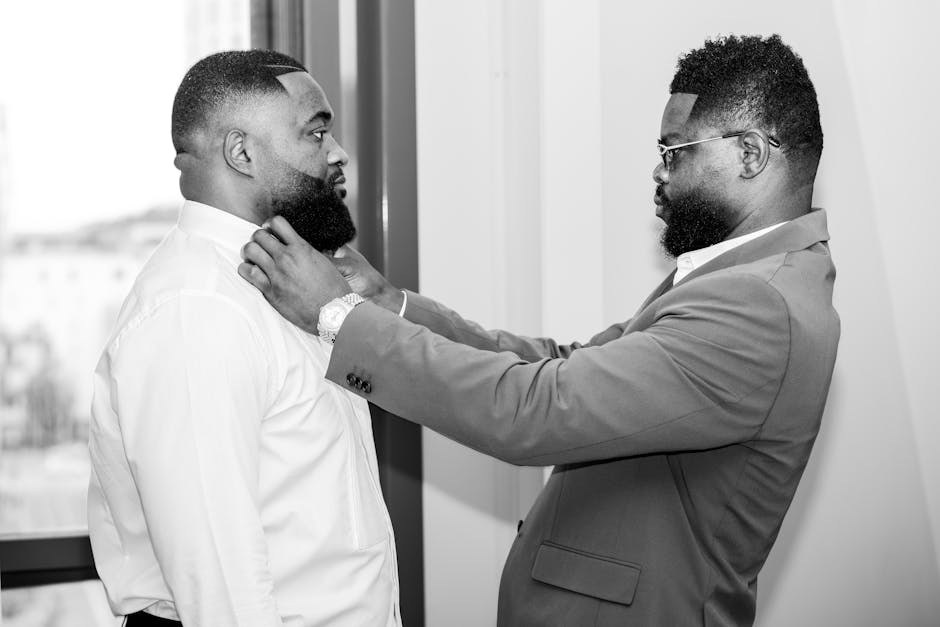Feeling deeply connected to your partner can be beautiful, yet there may come a moment when that closeness starts to feel a little too intense. Perhaps your boyfriend has hinted that you come across as a clingy girlfriend, or you have noticed yourself worrying whenever he is not right beside you. You might see yourself as affectionate and devoted, while he quietly feels crowded. Understanding where healthy intimacy ends and suffocating dependence begins is the key to reshaping the way you love.
What people really mean when they say “clingy girlfriend”
A woman described as a clingy girlfriend is not automatically selfish, dramatic or unreasonable. In many cases she is caring, loyal and eager to invest in the relationship. What often lies underneath her behavior is a fear of losing the bond she treasures so much. When affection is not answered in the way she expects, her mind can jump to worst-case scenarios. That anxiety then shows up as constant messages, demands for reassurance or resentment when he chooses to do something without her.
From the outside, it might seem as though a clingy girlfriend simply wants too much attention. On the inside, she is often craving emotional safety. If she does not feel secure, she may try to hold on more tightly, hoping that more contact, more conversations and more shared time will finally calm that inner worry. Unfortunately, the opposite usually happens – the more she clings, the more the relationship starts to feel cramped.

Why clingy behavior usually begins with insecurity
Most of the time, a woman does not wake up one day and decide to become a clingy girlfriend. Her patterns grow from experiences that made her doubt whether love is stable and reliable. A current partner who is distant, dismissive or inconsistent can easily trigger those doubts. If he pulls away when she reaches out, cancels plans or sends mixed signals, she may feel as though the relationship is slipping through her fingers, and she reacts by reaching for him even more.
Past relationships can feed that insecurity as well. If she has been cheated on, lied to or abruptly abandoned before, new love can feel like walking through a familiar minefield. Even small changes – a slower text reply, a night out she is not part of – may awaken old fears. Instead of enjoying the present, the clingy girlfriend is dragged back into memories that whisper, “This is how it started last time.” Her anxiety is not about the single event; it is about everything that event reminds her of.
Family history and childhood can also shape a clingy girlfriend’s expectations. Growing up around people who were unpredictable, distracted or emotionally unavailable teaches a child to fight for attention. She may learn that the only way to feel safe is to hold on tightly to anyone who seems reliable. When she later builds a romantic relationship, her boyfriend becomes the person she unconsciously expects to heal those old wounds. She may hope that if he constantly proves his love, the emptiness she carries will finally disappear.

The problem is that no partner can fully repair that inner emptiness. When a clingy girlfriend asks her boyfriend to be her entire source of stability, the connection quickly turns into a codependent arrangement. At first it may feel intense and romantic, but over time both people can feel trapped. He feels pressured to keep her calm and happy, while she feels panicked whenever his attention shifts away for even a moment.
Seeing clinginess through your boyfriend’s eyes
If your boyfriend has hinted that you behave like a clingy girlfriend, it can sting. Your first impulse might be to defend yourself or to shut down and give him the cold shoulder. Instead, it is worth pausing and honestly exploring what he might be experiencing. Perhaps he feels that every spare minute must be spent together or that he has to report every detail of his day to avoid upsetting you. Maybe he senses that you are reading hidden meanings into his tone, his schedule or his social life.
Looking at the situation from his side does not mean you are wrong for wanting connection. It simply helps you judge whether your behavior matches the kind of relationship you truly want. You can ask yourself, “If the roles were reversed, would I feel comfortable?” If the answer is no, then some of your habits are probably crossing a boundary you would want respected in return. That realization becomes a powerful first step toward changing how a clingy girlfriend responds to her fears.

Common behaviors that make you seem overly dependent
Closeness looks different in every couple. One partner may adore constant texting, while another prefers a relaxed check-in once or twice a day. Because expectations vary, what one man experiences as sweet and attentive, another might view as overwhelming. Still, there are several recurring patterns that often signal that a woman is slipping into clingy girlfriend territory.
You struggle to give each other breathing room. Downtime is important for everyone, and many men unwind by zoning out, gaming, reading or simply sitting quietly. When a clingy girlfriend rushes to fill every quiet moment with conversation or togetherness, he may feel as though his personal space has disappeared. If you panic when he asks for an evening to himself, or you shadow every move he makes, he will eventually see that as suffocating.
You want long conversations he no longer enjoys. In the early romantic rush, staying up for hours talking or texting feels effortless. As life settles into a routine, your boyfriend may naturally reclaim time for his hobbies, friends or rest. A clingy girlfriend often interprets this shift as a sign that his feelings are fading, and she pushes for the marathon chats they used to have. The more she insists, the more he may pull back, turning a normal adjustment into a real problem.
Your social life quietly shrinks around the relationship. When you drop friends, interests and plans so that you are always available for him, you send a message that your world revolves around his schedule. At first he might enjoy the attention, but soon a clingy girlfriend begins to feel heavy – as if she has no joy or identity beyond the couple. That pressure makes him less eager to see you, which in turn can make you cling even more tightly.
You see most other people as a threat or bad influence. A clingy girlfriend may believe that she is the only one who truly understands what is good for her partner. She might complain about his friends, resent colleagues he spends time with or assume that every new person in his life will drag him away from her. Instead of helping him notice unhealthy relationships on his own, she tries to control his entire circle, which often breeds resentment rather than closeness.
You lean on him for every little problem. Wanting support from your partner is natural. However, when you treat him as your rescuer in every situation – from tiny decisions to basic daily tasks – he can feel more like a parent than a boyfriend. A clingy girlfriend may constantly ask for help just to feel reassured that he cares. Over time, this drains his energy and makes him less responsive, even when she genuinely needs him.
You feel threatened by attractive women around him. If he chats with a pretty coworker or laughs with a friend at a party, you might instantly picture him leaving you. A clingy girlfriend often compares herself to every woman nearby and assumes she will lose if he notices anyone else. She might respond with jealousy, criticism or attempts to monitor every interaction. Ironically, this can damage his trust far more than the harmless conversation ever could.
You dislike when he spends time with his friends. When your calendar is empty without him, his nights out may feel like a personal rejection. A clingy girlfriend can become sulky, demanding or guilt-tripping whenever he chooses a social event she is not part of. Instead of enjoying her own plans, she waits by the phone and silently resents every hour he is away. This pattern makes both partners unhappy – he feels policed, and she feels abandoned.
You constantly question the quality of the relationship. Because she is always scanning for danger, a clingy girlfriend may bring up problems again and again in the hope that he will finally prove his commitment. She might demand big gestures, repeated declarations of love or detailed promises about the future. Honest conversations about issues are healthy, but constant “where is this going?” talks can make him feel as though he is being tested rather than loved.
You become suspicious whenever he is busy. If he works late, forgets to send a quick update or turns off his phone during a meeting, your imagination may run wild. A clingy girlfriend might jump straight to accusations, interrogations or attempts to catch him doing something wrong. The sad truth is that no amount of monitoring can stop someone who truly intends to cheat – and unfair suspicion can drive away a partner who was loyal in the first place.
You expect to be in constant contact. For some couples, frequent messaging is fun; for others, it feels like pressure. A clingy girlfriend often expects her boyfriend to mirror her own communication style. She might call several times a day, send multiple messages in a row and feel hurt if he does not respond immediately. When he does not behave the same way, she may assume he cares less, even if he simply has a different rhythm.
You demand his attention at all times. If he is watching a movie, playing a game or focusing on a project, you may still expect him to respond immediately when you want to talk. A clingy girlfriend can feel entitled to center stage in every moment, as though his hobbies, rest and solitude are less important than her need to connect. Over time, this makes him guard his alone time more fiercely, which is the opposite of what she wants.
You struggle to accept that he has a life beyond the relationship. Love can make you feel like your partner is your entire universe, yet he still has work, responsibilities, dreams and relationships that existed before you. A clingy girlfriend may take every outside interest as proof that she ranks second. Instead of building a rich life of her own and inviting him into it, she waits for him to revolve around her, which eventually leaves both partners frustrated.
You believe you care more than he ever will. When you feel that you love him far more than he loves you, panic is never far behind. A clingy girlfriend might keep score in her mind – who texts first, who plans dates, who sacrifices more. If she decides she is always giving more, she may cling, complain or try to force him into a version of the relationship that matches her ideal. This rarely works. Respecting yourself enough to walk away from someone who truly does not value you is far healthier than chasing him with endless effort.
Shifting from neediness to healthy connection
The encouraging news is that acting like a clingy girlfriend is not a permanent identity. These patterns can soften and change with self-awareness and practice. You will not transform overnight, but steady, small adjustments can make both you and your relationship feel lighter.
Strengthening your sense of self
The first step is remembering that you are not defined solely by your relationship status. Before this boyfriend, you were a complete person with talents, friendships and dreams. Reminding yourself that you are, in fact, “hot stuff” is not arrogance – it is a realistic appreciation of your own value. When a clingy girlfriend starts to recognize her strengths, she no longer needs constant proof from her partner that she is worth loving.
Building self-esteem also means challenging the harsh inner voice that calls you unlovable whenever something goes wrong. Instead of assuming that a delayed reply means he is bored, you can consider calmer explanations: he might be busy, tired or distracted. Each time you give a more balanced interpretation a chance, you loosen the grip that fear has on your reactions. Over time, the clingy girlfriend voice in your head grows quieter.
Reclaiming independence inside the relationship
Independence does not mean emotional distance. It means having a solid base of your own so that the relationship becomes an addition, not a replacement, for your life. Start by reviving activities that once made you feel alive – hobbies, passions, social groups or simple routines that belong to you. When a clingy girlfriend invests energy back into herself, she naturally has less time and urgency to monitor her boyfriend’s every move.
Another powerful shift is to let him initiate sometimes. Instead of always being the one to text first, plan dates or rescue awkward silences, give space for him to step forward. This does not have to be a game; it is simply a way to test whether you are the only one carrying the relationship. If he cares, he will eventually notice the quieter space and move toward you. If he does not, you gain clear information that helps you decide whether a clingy girlfriend can truly thrive with someone so passive.
Communicating needs without smothering
Letting go of clingy patterns does not mean burying your feelings. It means expressing them in a direct, respectful way. Instead of criticizing him for going out, you might say that some quick reassurance before he leaves would help you feel more secure. Instead of accusing him of not caring, you can explain that regular check-ins are meaningful to you and ask whether you can find a frequency that works for both of you.
When a clingy girlfriend shifts from demands to honest requests, the tone of the relationship changes. He no longer feels attacked or controlled, and you no longer feel like you are begging for scraps of attention. Clear conversations about boundaries – how much space each of you needs, what feels respectful, what is non-negotiable – help prevent the misunderstandings that originally fed your anxiety.
Respecting yourself as much as you love him
Perhaps the most important change is recognizing your own worth. A clingy girlfriend sometimes tolerates broken promises, canceled dates or harsh words because she is terrified of being alone. Yet every time you accept poor treatment, you teach yourself that your needs do not matter. Choosing to walk away from someone who repeatedly dismisses you is not dramatic – it is an act of self-respect.
When you carry that self-respect into every interaction, something powerful happens. You no longer chase love that feels uncertain, and you no longer feel compelled to control your partner. Instead, you invite a relationship in which two independent people choose each other freely. The old version of the clingy girlfriend slowly fades, replaced by a woman who is capable of deep affection without losing herself in the process.
If you recognize yourself in these descriptions, you are already more aware than you were before. Use that awareness gently, not as a weapon against yourself. Notice which habits feel most like a clingy girlfriend pattern in your own life, and experiment with small alternatives – an evening spent with friends, a text you deliberately delay, a calm explanation of what you need. Step by step, you can build a connection that feels secure for you and spacious for him, giving both of you the kind of love that can actually breathe.